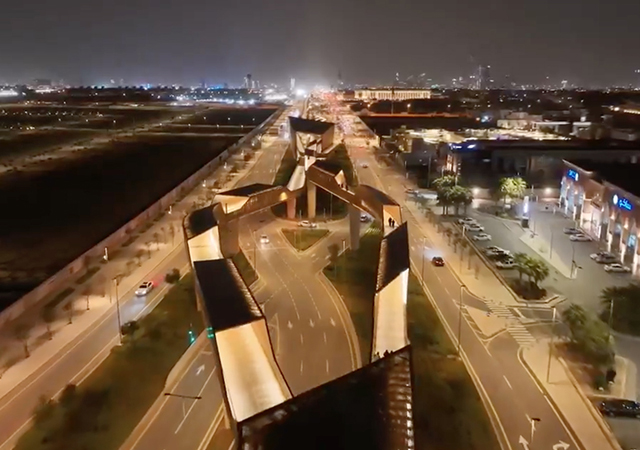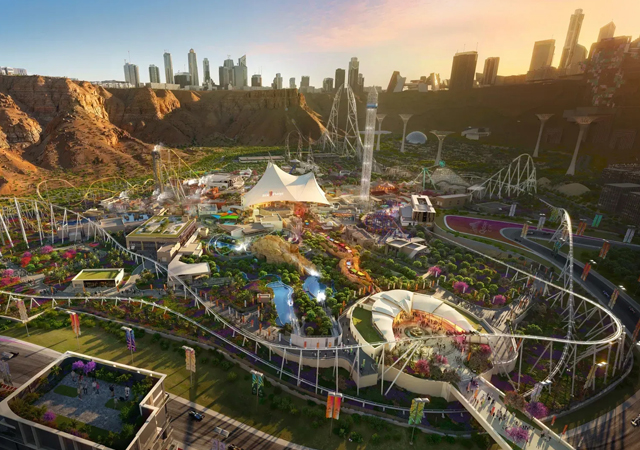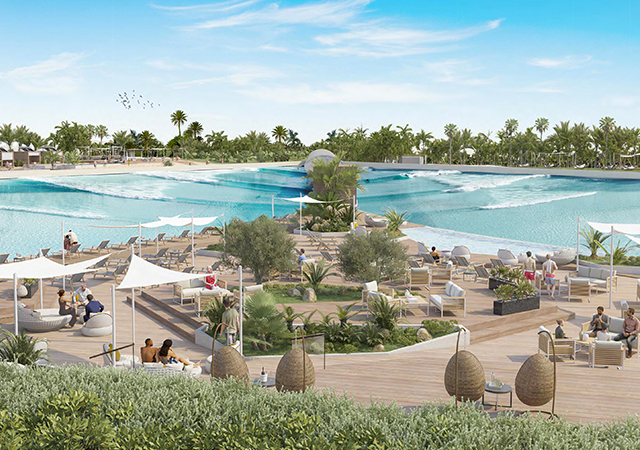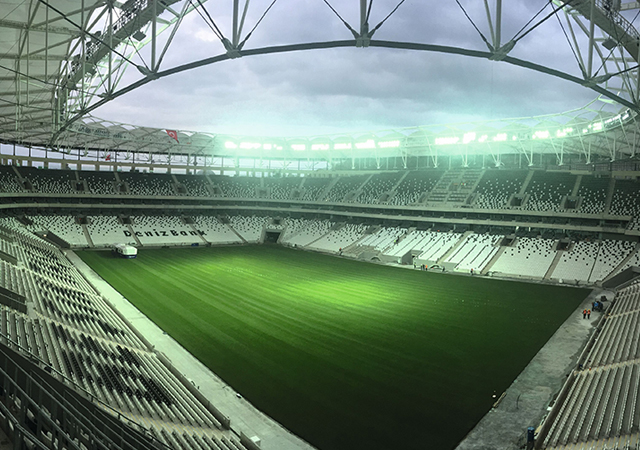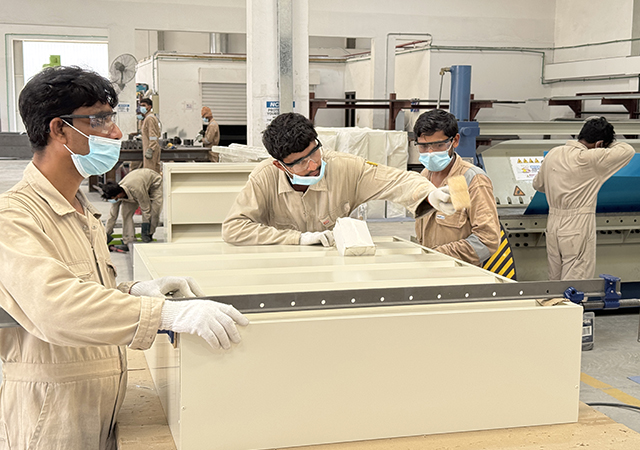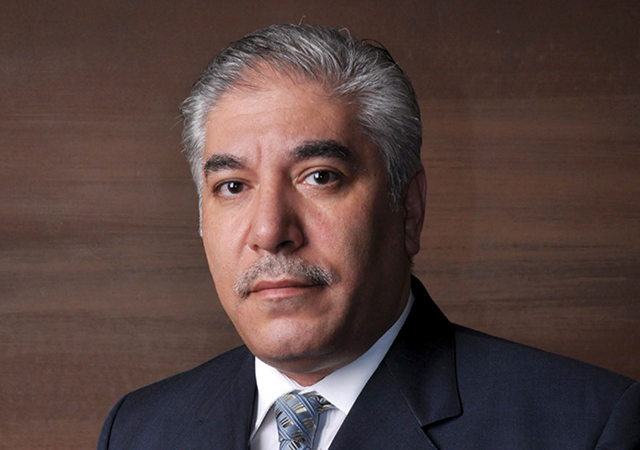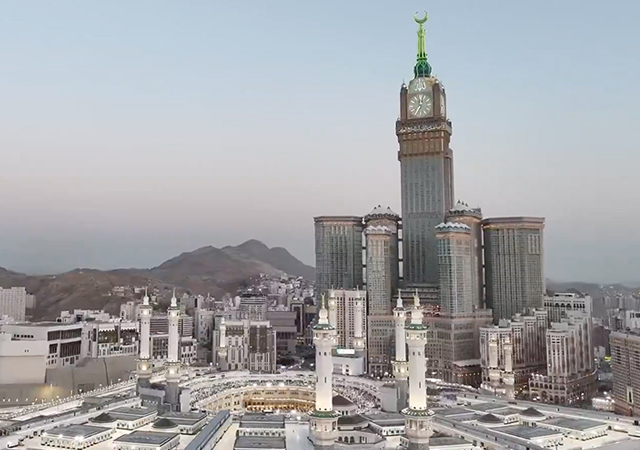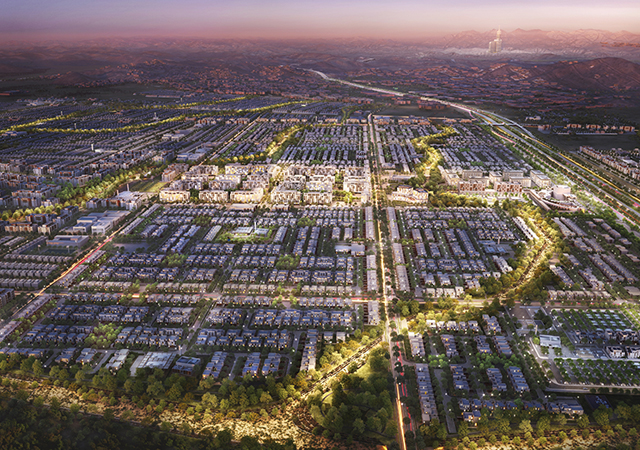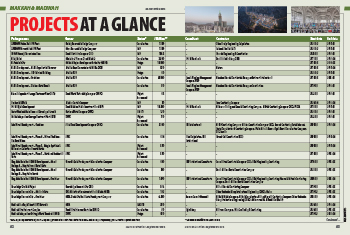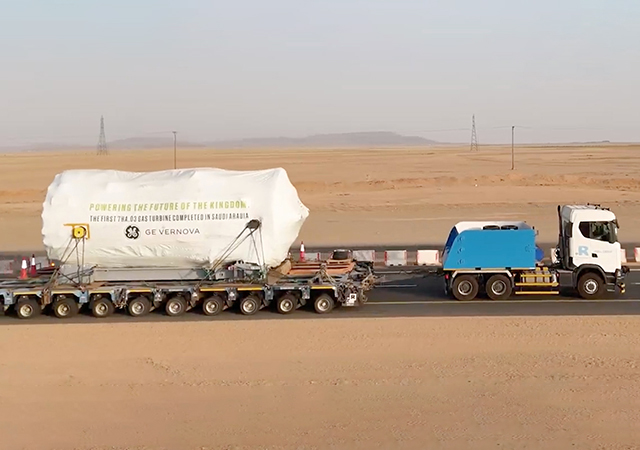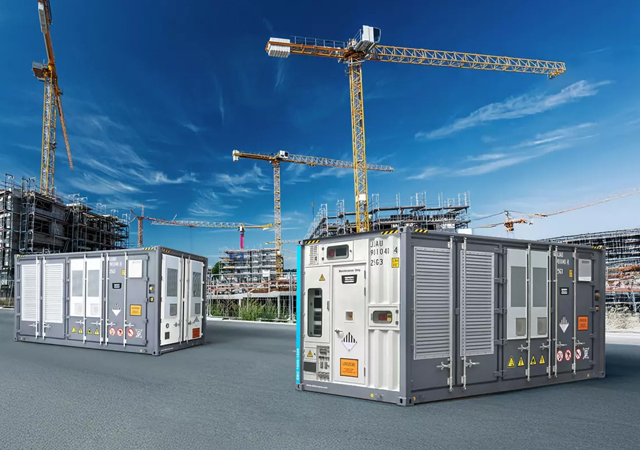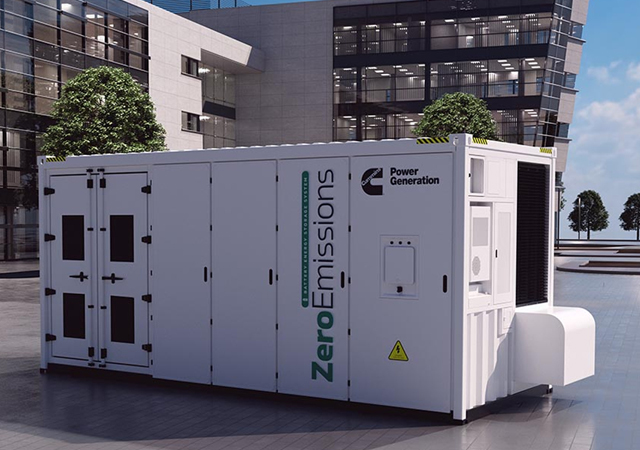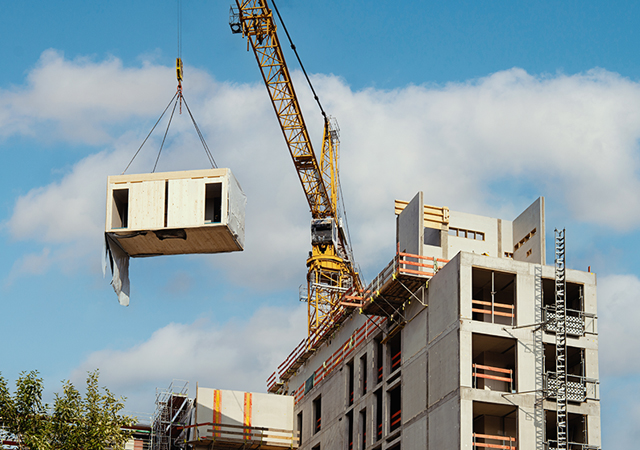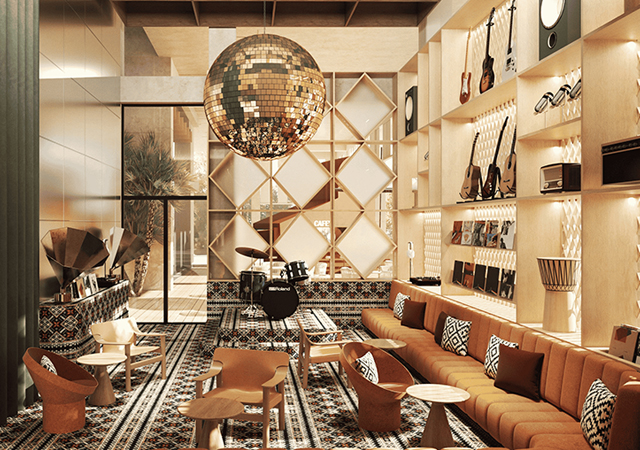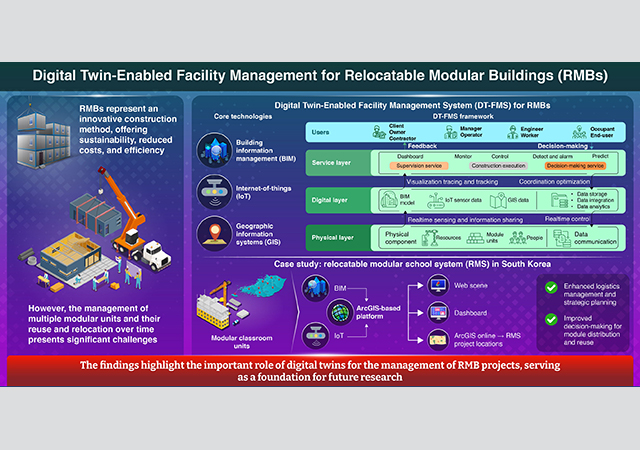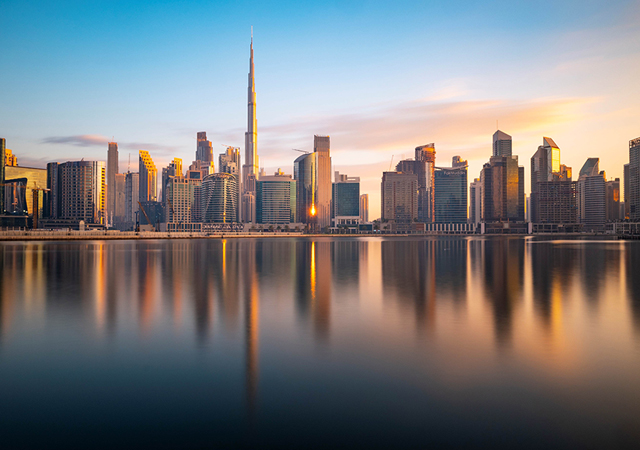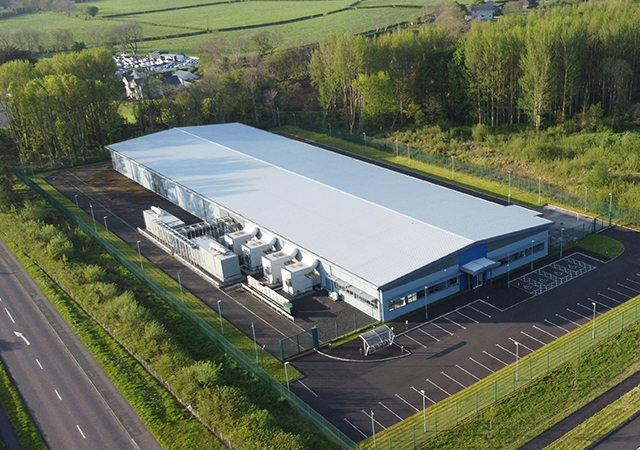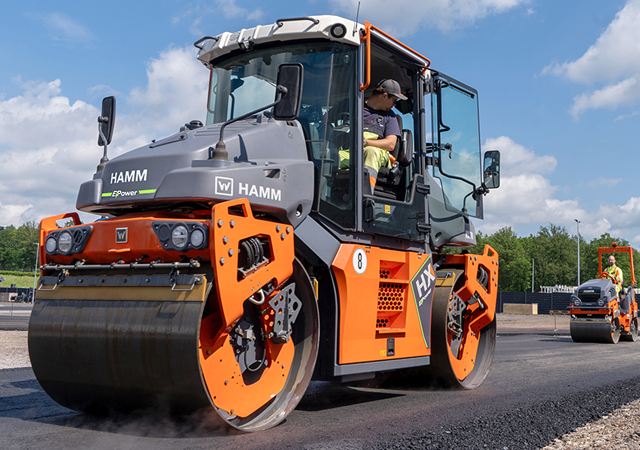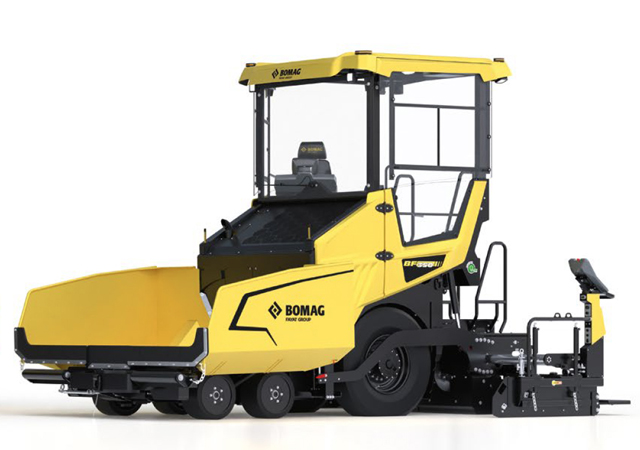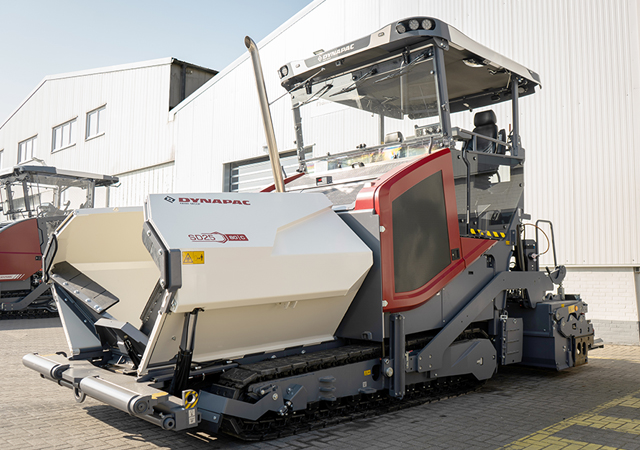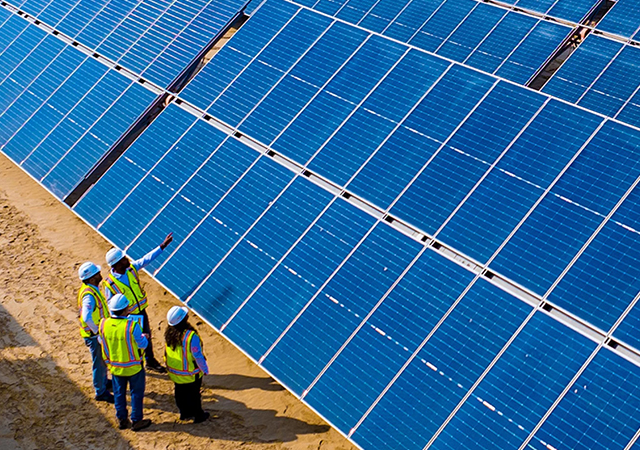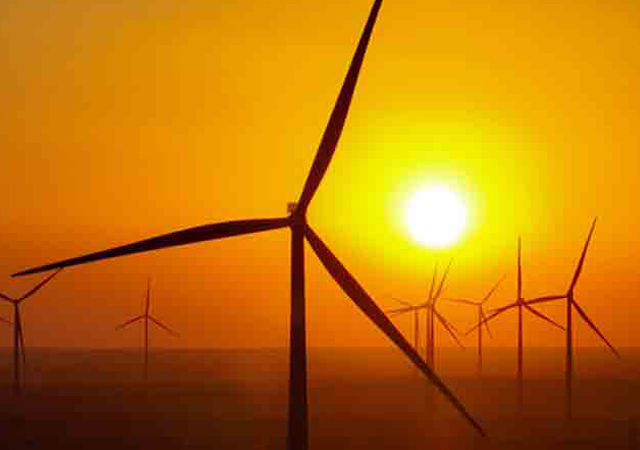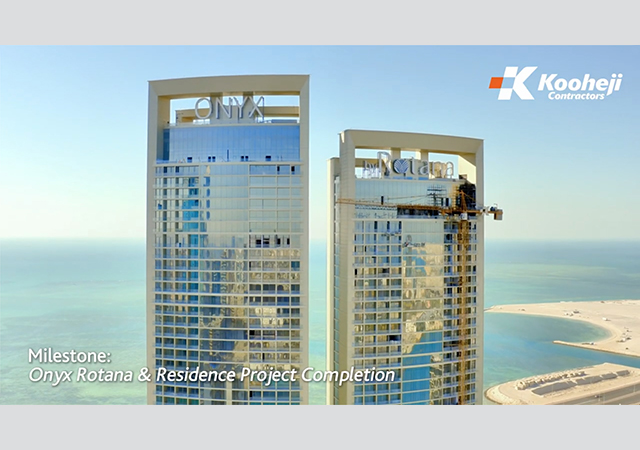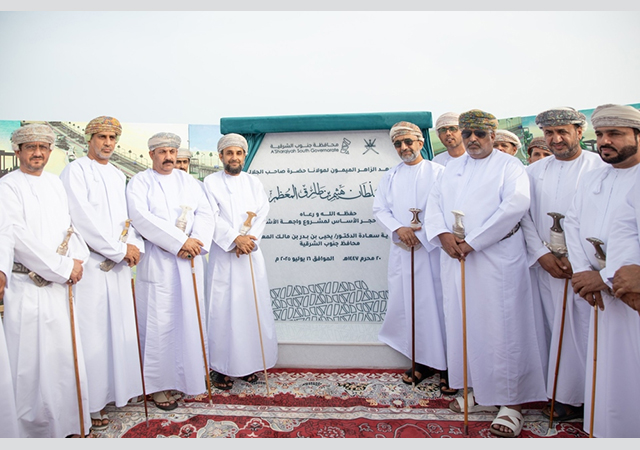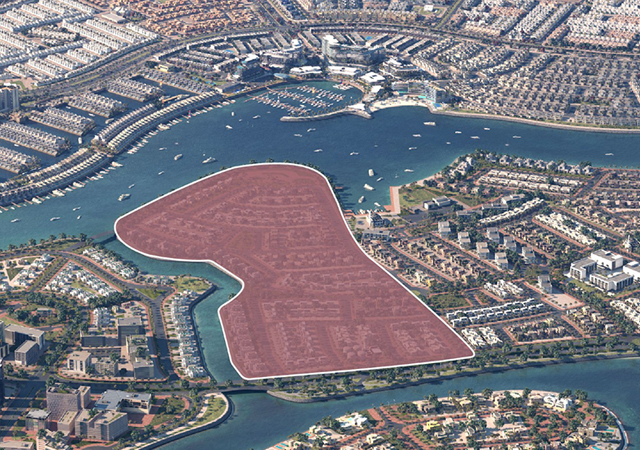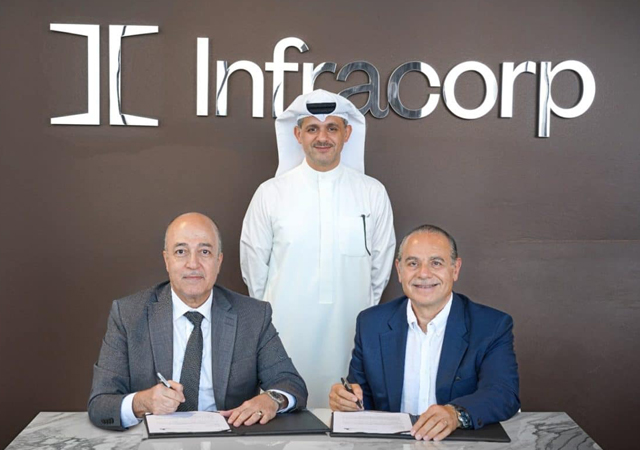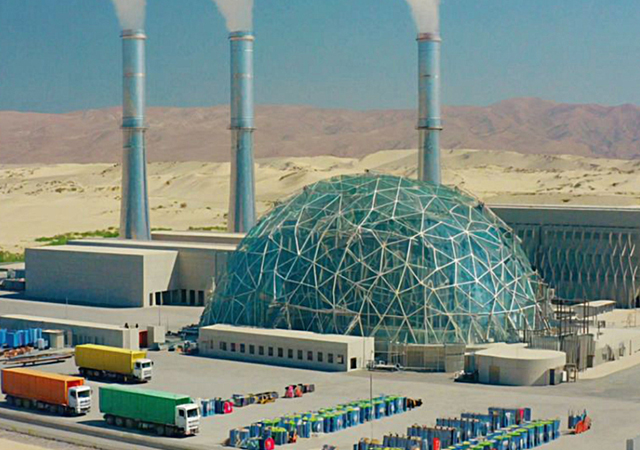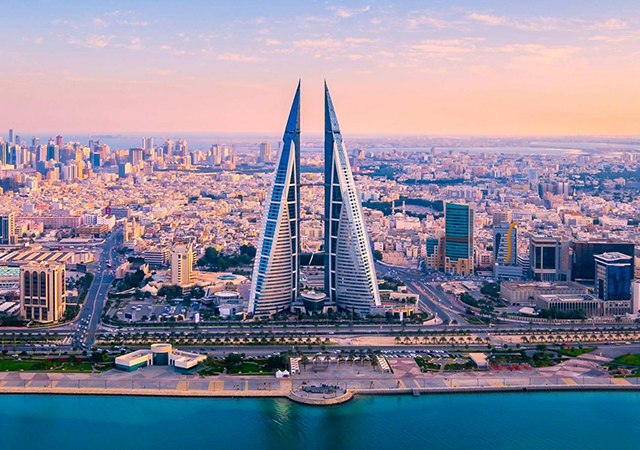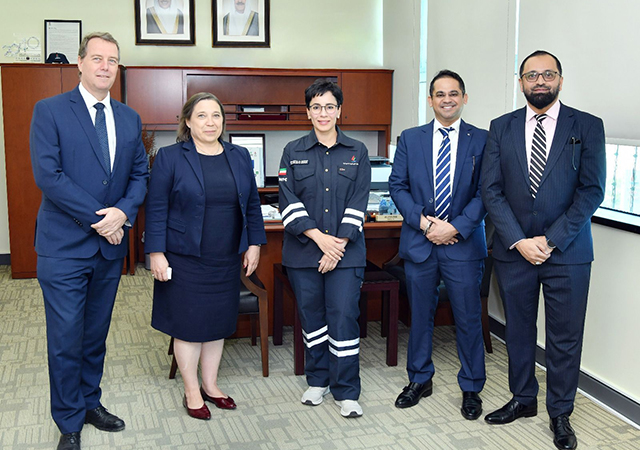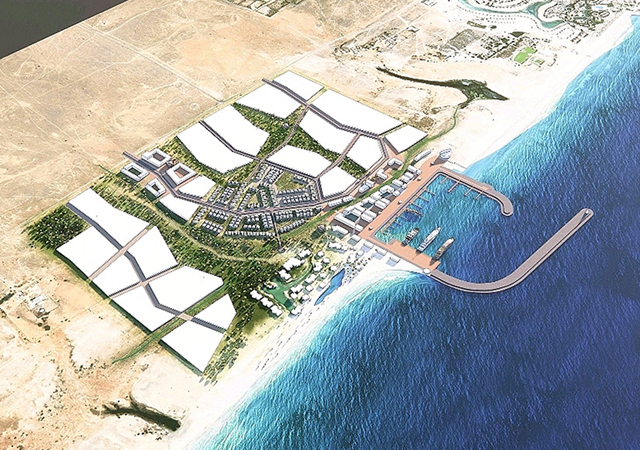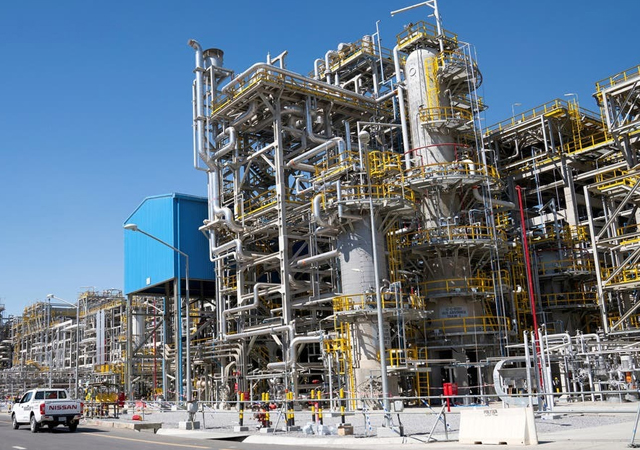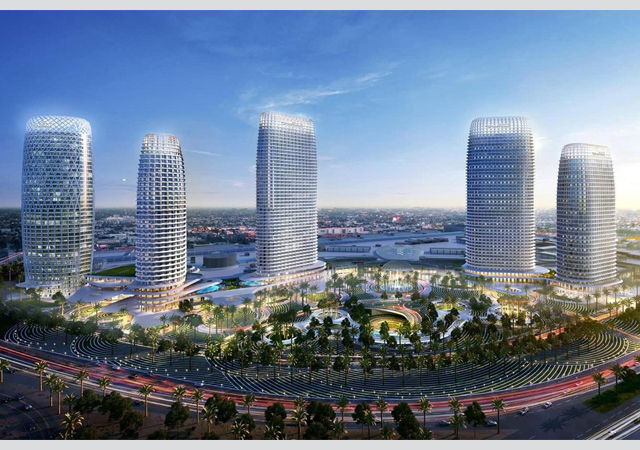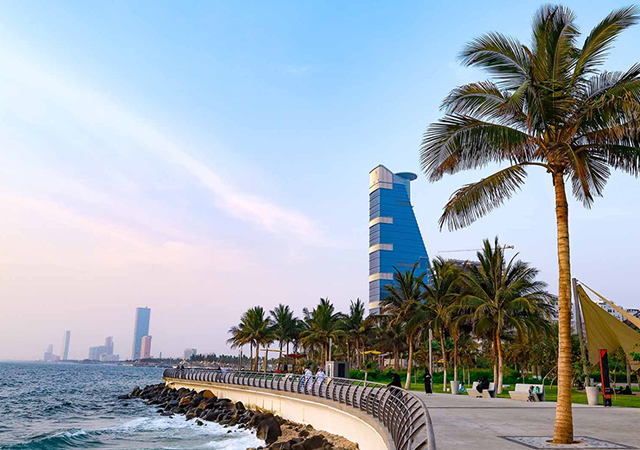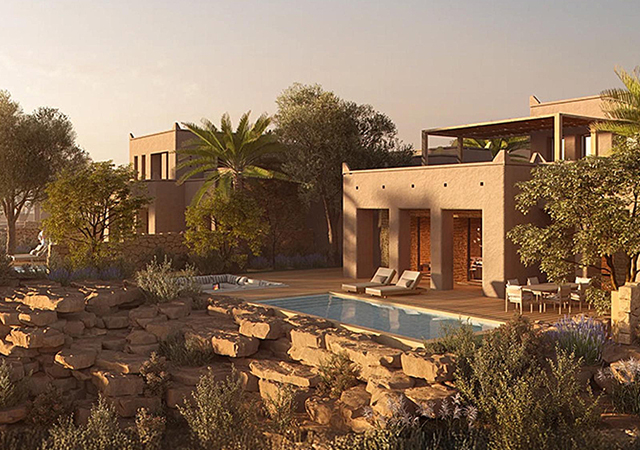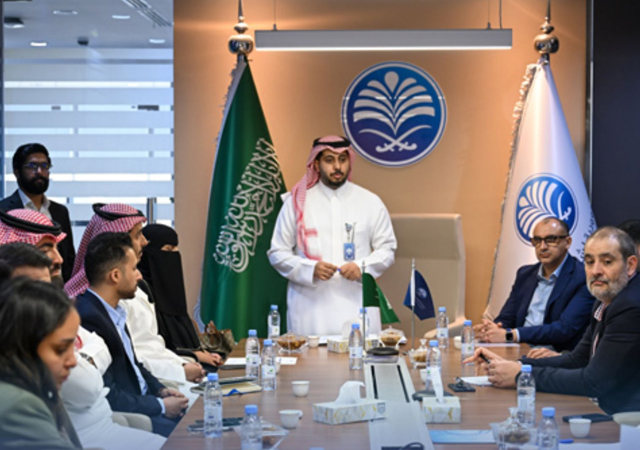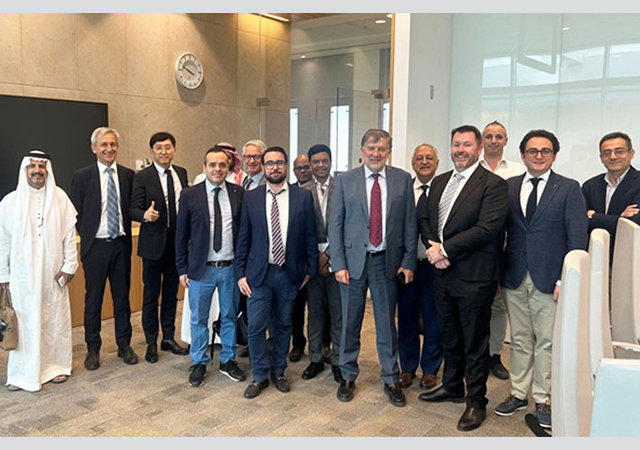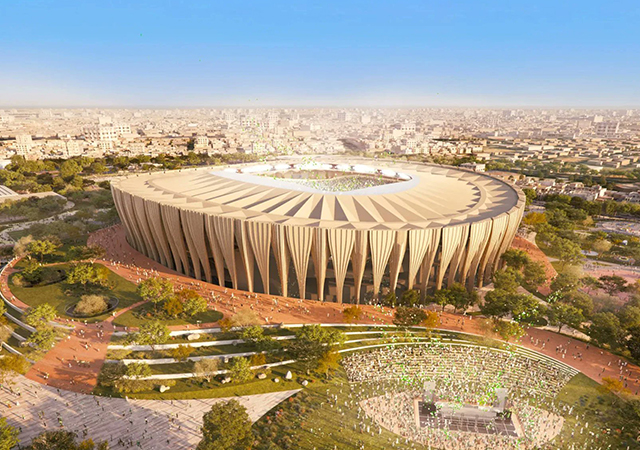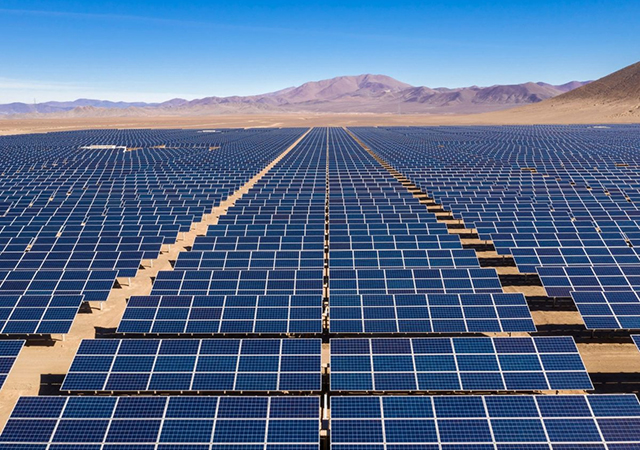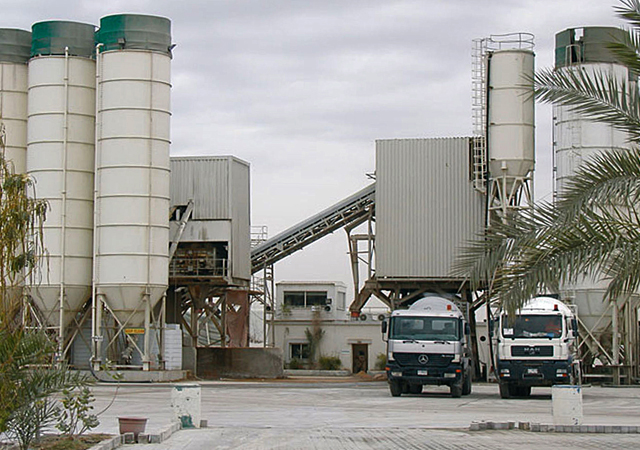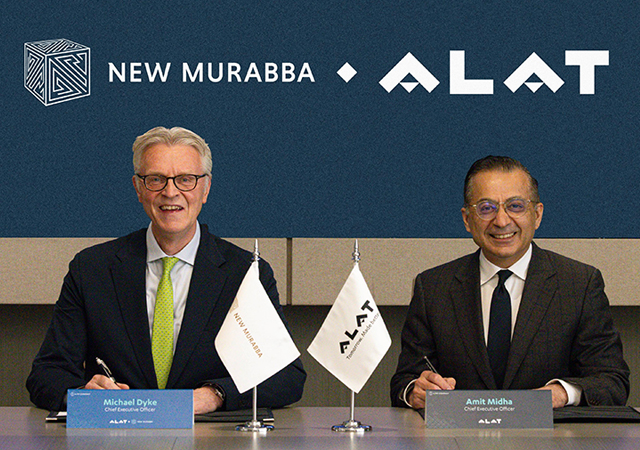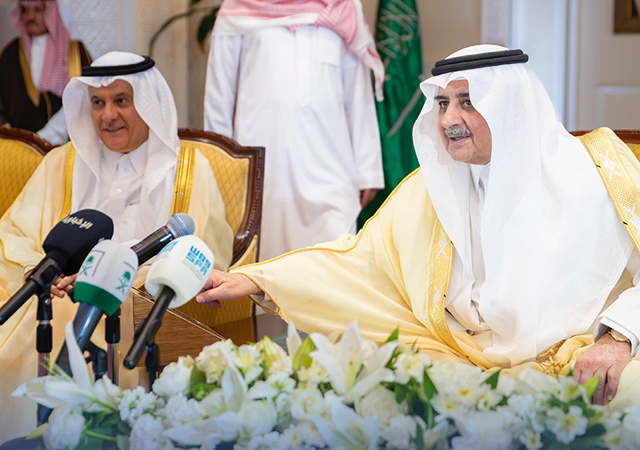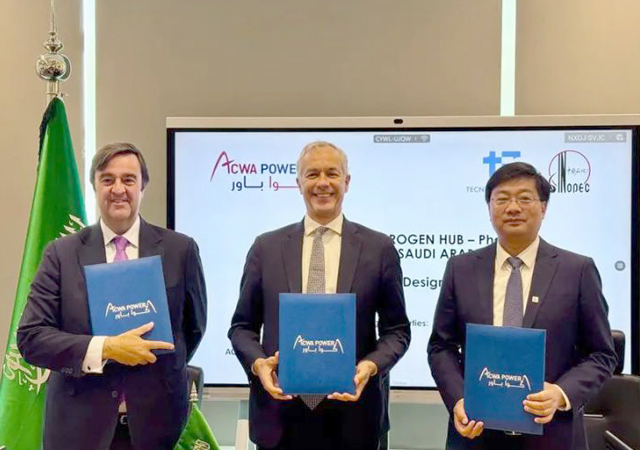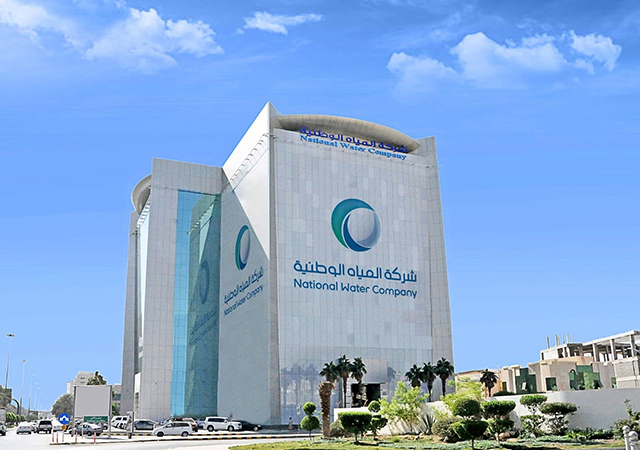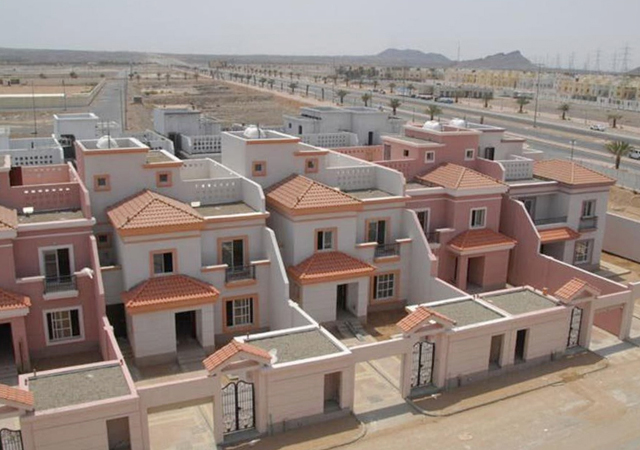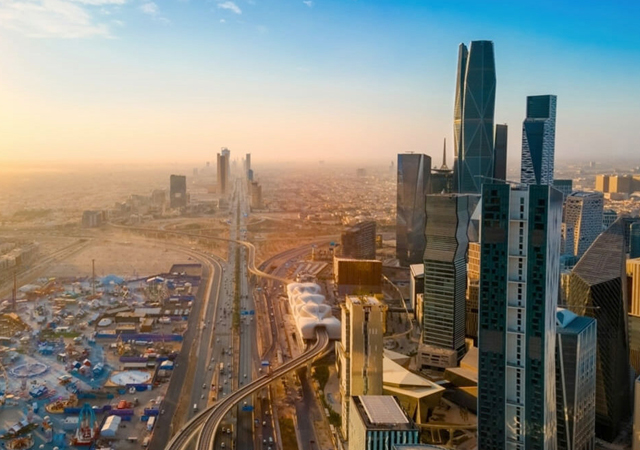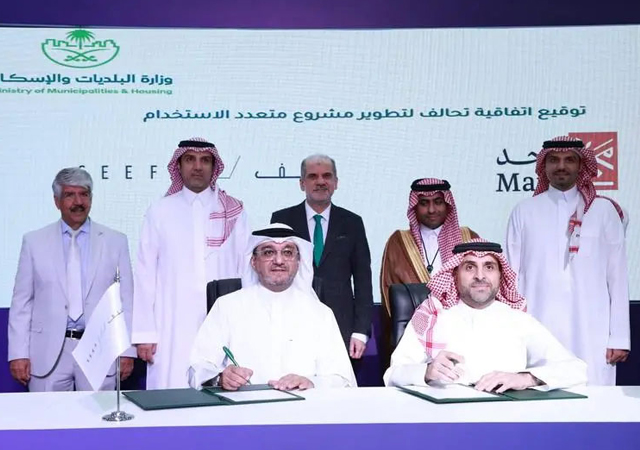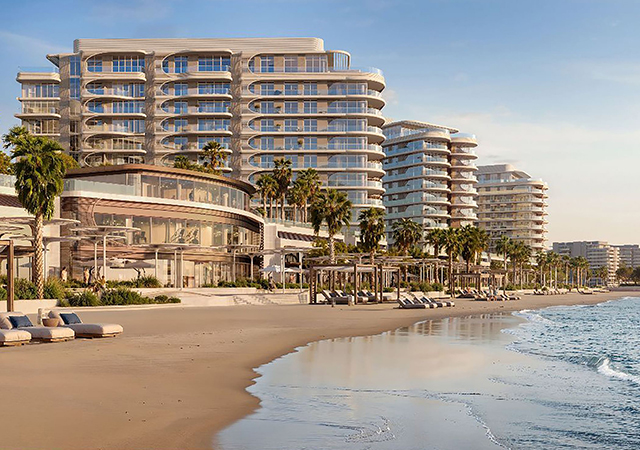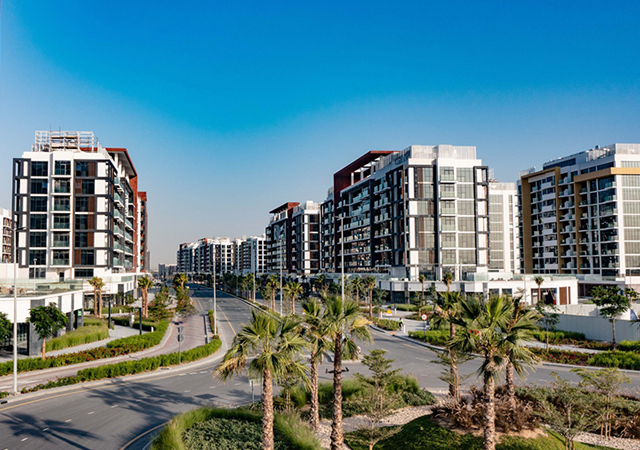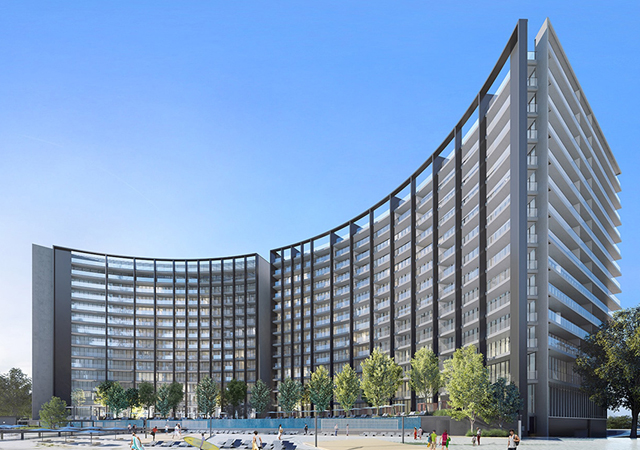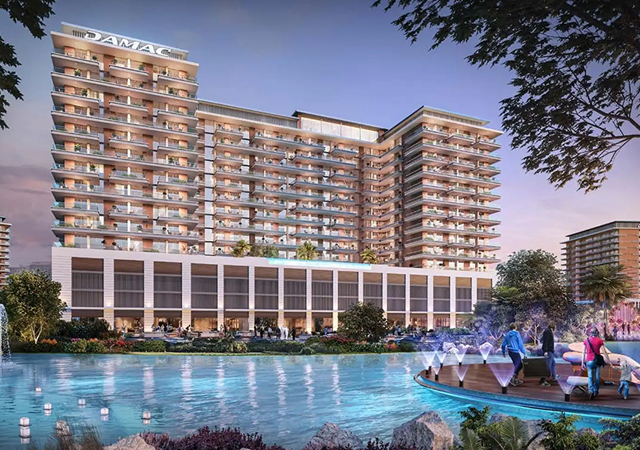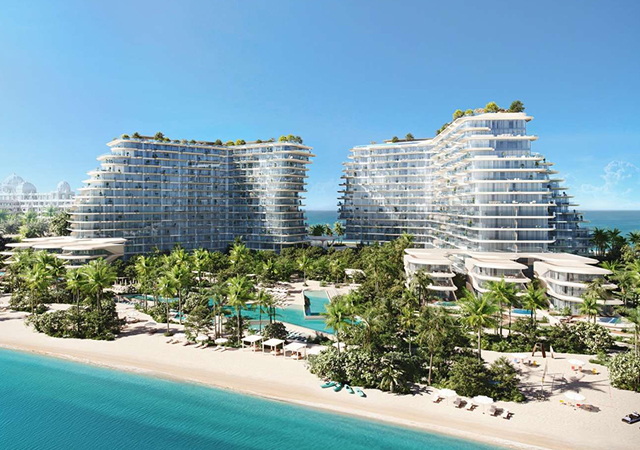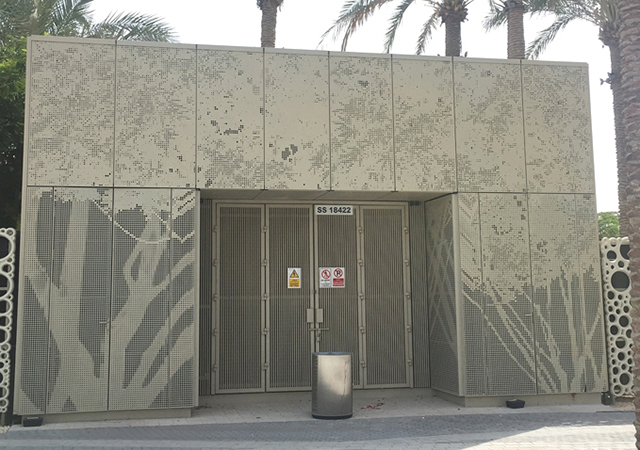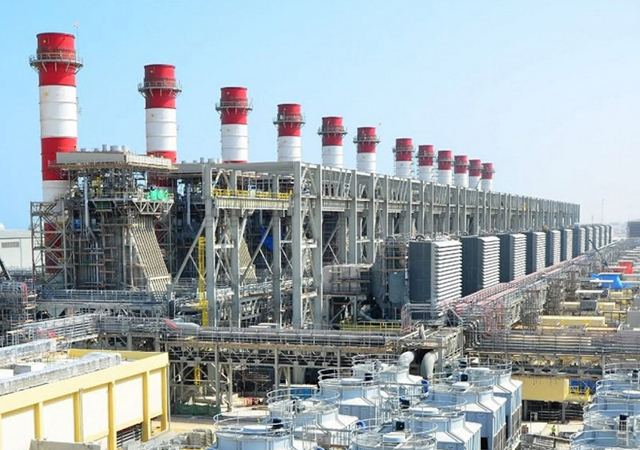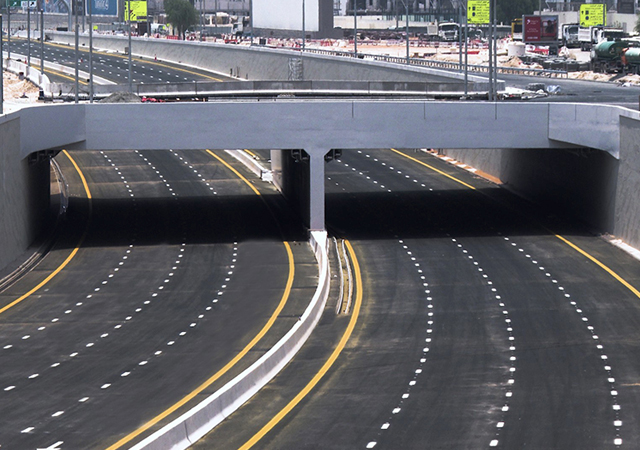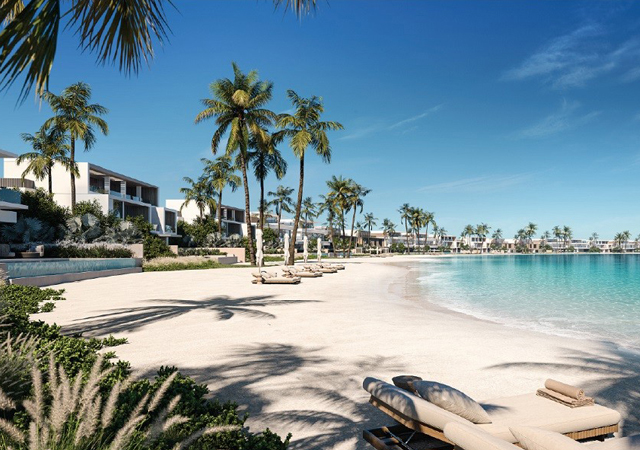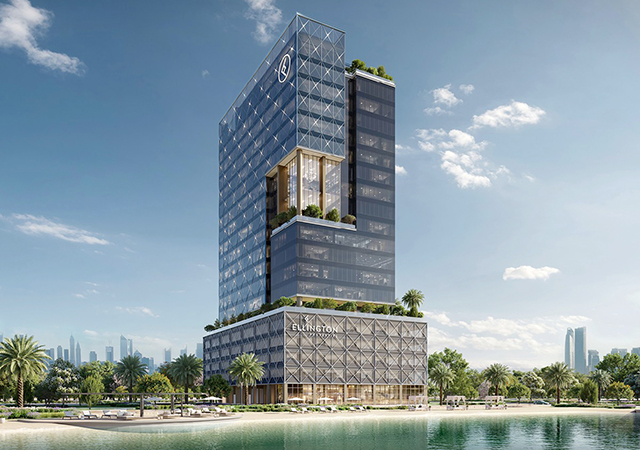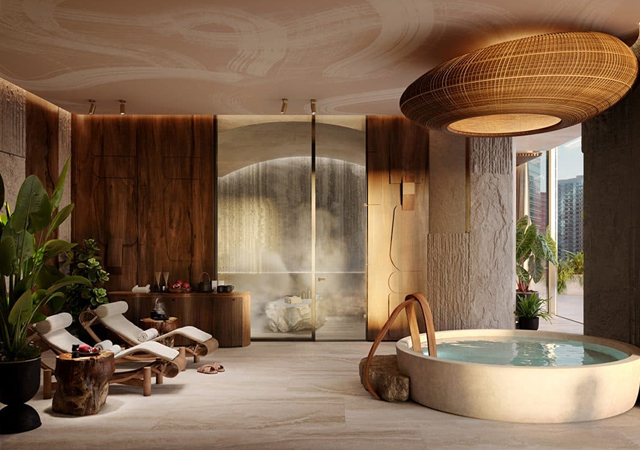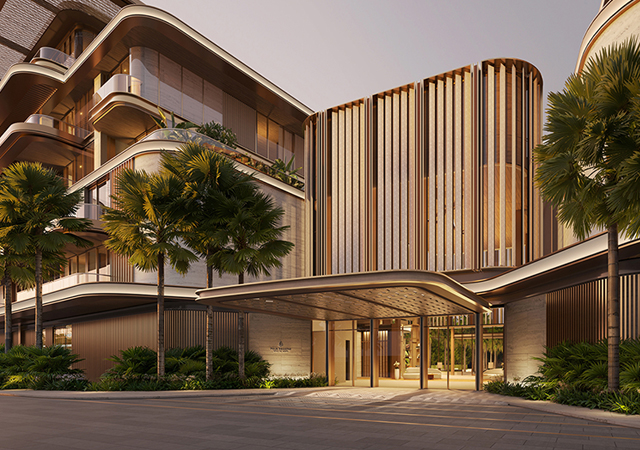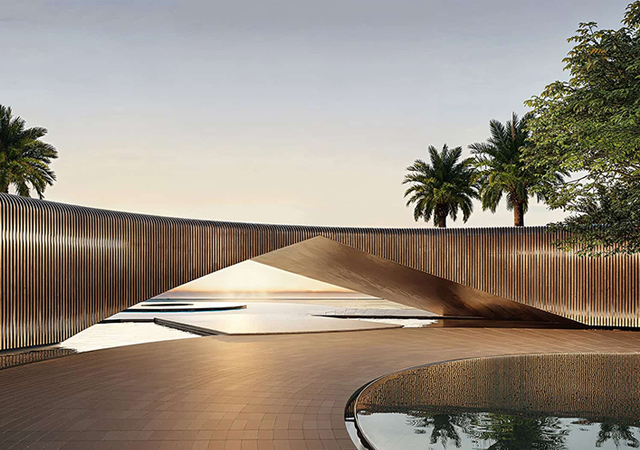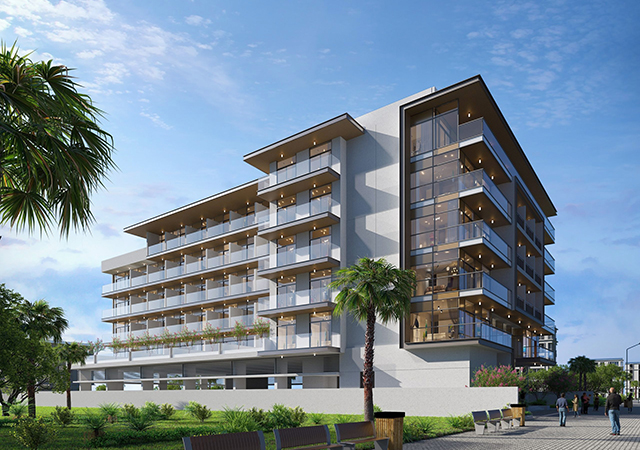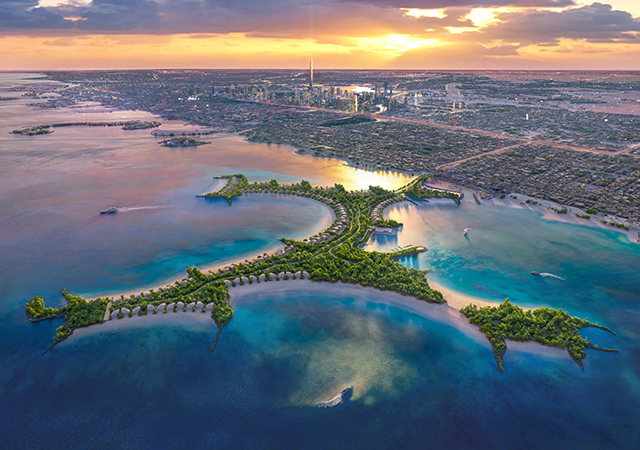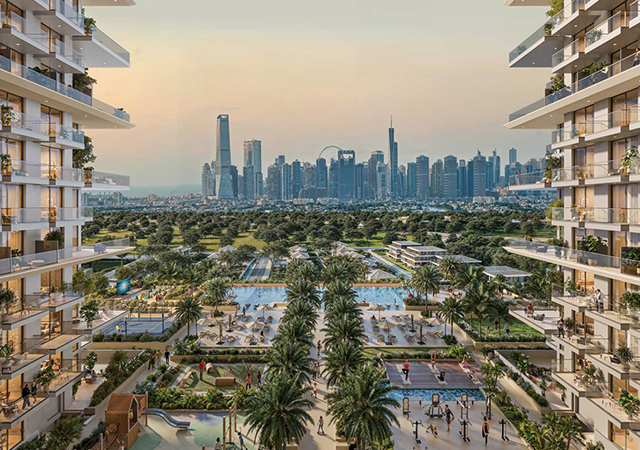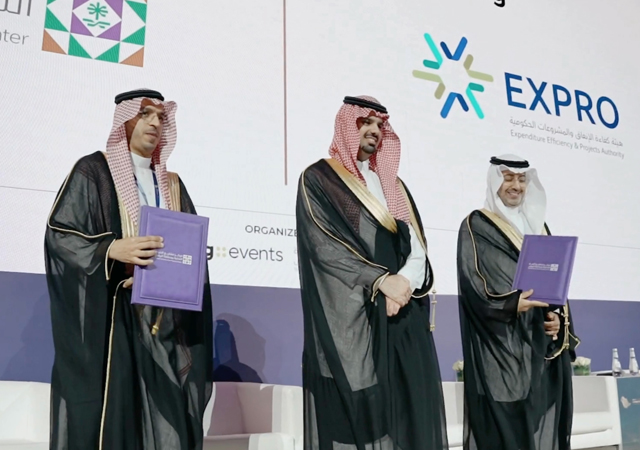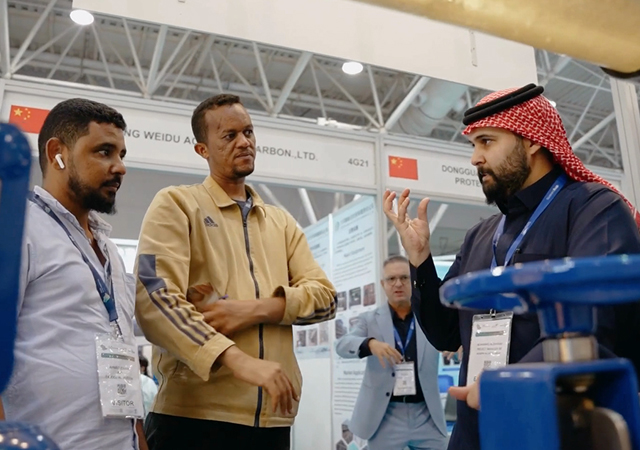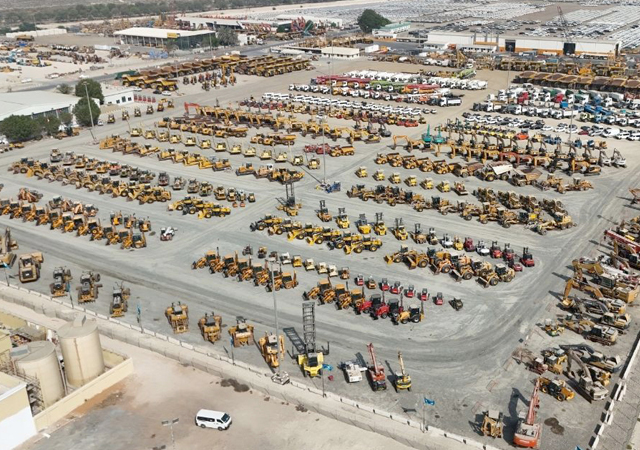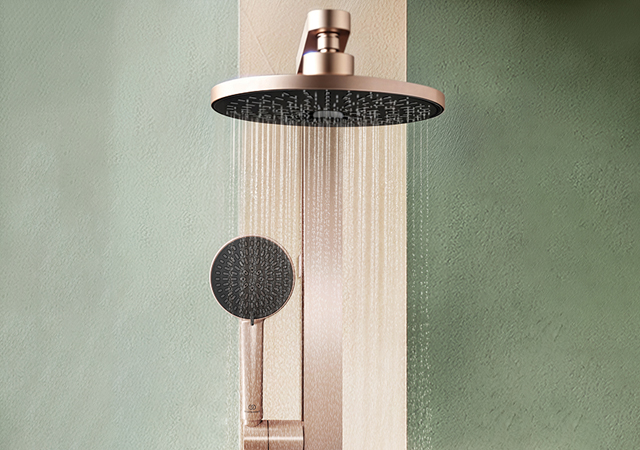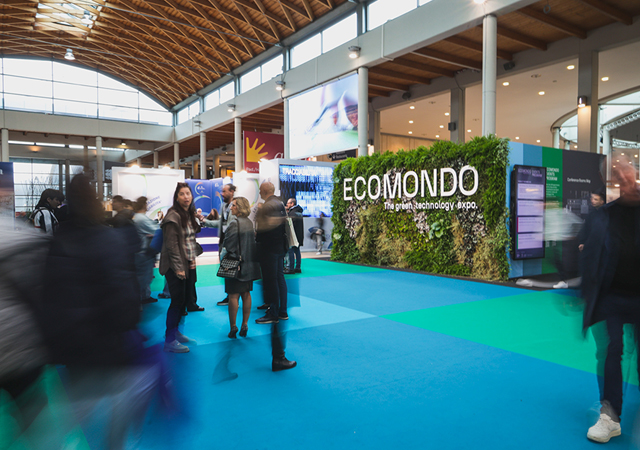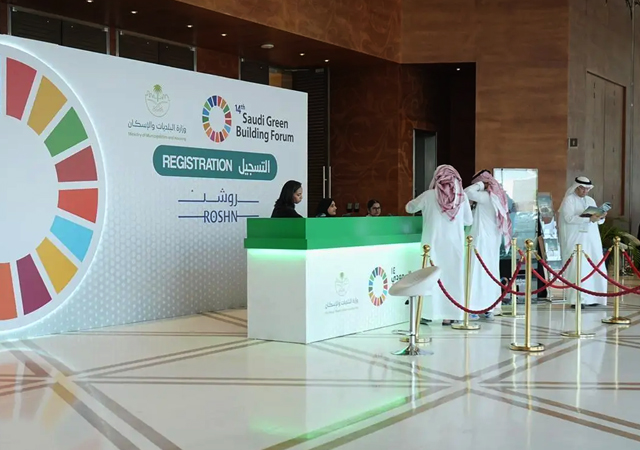
 Retaining wall for 400 kV Mamzar Beach substation basement in Dubai.
Retaining wall for 400 kV Mamzar Beach substation basement in Dubai.
PASCHAL is forging ahead with a number of high-profile projects in the region, including Dubai’s first 400 kV underground electrical power supply system – the $127 million Mamzar Beach substation.
In addition, Paschal systems and modular panels are being used in some of the major commercial and residential projects in the emirate to speed up the construction of columns, core walls, retaining walls and water tanks. These include the DEC Business Tower, Iris Amber, a commercial building at Dubailand, and the Bay Central Hotel at Dubai Marina.
“Paschal’s Modular/GE has proven its versatility and flexibility in use on the widest range of construction sites in more than 60 countries, whether in foundations, walls, shafts, polygons, columns or beams,” says a spokesman for Paschal, a leading German formwork manufacturer. “Work with Modular has proven to be faster and easier than with other products. The strong flat steel frame is easy to clean and work with.”
“The benefits of Modular were instantly recognised at the construction site, one of the reasons being the efficient training provided to specialised workers by Paschal sales engineers and installers,” he says.
Mamzar Beach substation
This formwork was utilised in the construction of a substation near Al Mamzar Beach Park, located just 6 km from Dubai city.
Internationally operating companies, including those from Germany, are involved in the $127 million project which features an EHV (extra-high-voltage) 400 kV line running underground – a first for Dubai. The substation is in the final stages of construction with the plant scheduled to be handed over, ready for use, in May this year. It will be fed with electricity generated in Al Awir, which will be transmitted 20 km to Mishrif and from there 20 km underground to Mamzar Beach.
 |
|
Mamzar substation ... Dubai’s first underground supply system. |
The client for the project is the Federal Electricity and Water Authority (Fewa) in Dubai with the main contractor being Siemens Power Transmission and Distribution (PTD). The sub-contractor responsible for all civil construction is the Dubai-based Lootah Building & Construction (LBC), a division of the Lootah Group of Companies.
Excavation work in this area dominated by desert sands began end of 2009. With the groundwater level at 4.2 m beneath the surface and as it was necessary to go 8 m deep into the ground, open dewatering was necessary. Work on the shell construction began in January 2010.
Six construction components of the plant are largely underground and comprise a gas-insulated 400 kV substation including low-voltage control centre (LCC relay room); a gas-insulated 132 kV substation including an LCC relay room; a building for the 400 kV inter-connecting transformer (ICT); the master controller for 132 and 400 kV units; a control building; and auxiliary buildings with water tank, pump room and collection tanks.
The partially underground substation covering 24,000 sq m may be considered small in comparison to conventionally built plants with similar capacity. But it is made of 4,850 tonnes of gas-impervious PPC 40/20 concrete containing eight per cent microsilica. About 3,000 tonnes of concrete reinforcement will be integrated into it.
The base foundations have been built using conventional methods, with Paschal’s modular universal formwork used for all vertical surfaces. The formwork was also able to meet the challenges posed by the varying depths of the heavily-reinforced foundation of the building housing the master controller.
“At a depth of 8 m, there was hardly enough space and there were numerous separating walls. Thanks to its modular format, the formwork is easy to work with and comparatively light and was able to satisfy all of these requirements,” says a spokesman for Paschal.
Paschal’s subsidiary in Dubai (Paschal Emirates Company), under the direction of the construction engineer, Primo Celeste, was responsible for the formwork planning and supply.
“Since the cycle planning was very effective, only 1,500 sq m of formwork were necessary for the substation project. This apart, 200 sq m of several sets of, to some extent, double-height column formwork (up to 9 m), were used. Despite the different wall heights (up to 9 m), foundation height changes and the strict supervision of the consultant Électricité de France International, Modular formwork satisfied the requirements with ease,” the spokesman says.
Commercial buildings
Meanwhile, Paschal’s modular panels are also being used for the construction of a number of other projects in Dubai.
At Dheeraj Wadhwan’s DEC Business Tower, which comprises three basement levels, a ground level, three podium levels and 19 typical floors, Paschal systems are being used for the construction of the columns, core walls, retaining walls and water tanks. The project, which is currently at the second podium level, is being built by Al Nekhreh Contracting Company.
The formwork is also being used for the construction of similar aspects of Iris Amber, a Sheth Estate International project, and a commercial project for Ismail Ahmad Abdulhamid Al Zarooni, which are currently at the podium level and ground level, respectively.
Among other Dubai projects, work is nearing structural completion on the Bay Central Hotel at Dubai Marina.
Elsewhere in the UAE, Paschal systems are in use in the construction of the Al Wifaq Tower Shams located in Reem Island, and the Marina Bay Tower in Najmat, both in Abu Dhabi.



